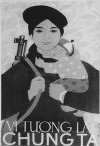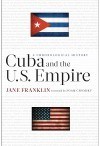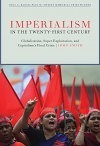Imperialism
Ali Kadri, Arab Development Denied (London: Anthem, 2014), 250 pages, $40, paperback.
Perhaps nowhere does violence collapse the horizon as it does in the Arab world. Imperial wars have demolished the Libyan state and turned Syria into a charnel house. Yemen, the region’s poorest country, was a U.S. drone shooting gallery before Saudi Arabia…attacked it, sending it spiraling into famine. Iraq shudders under ISIS’s car bombs after decades of wars and sanctions. And Palestine continues to bleed and resist under the weight of Israeli settler-colonialism.… Why so much violence? The academic mercenaries of counterinsurgency studies fixate on terrorism as a response to material grievance, and Western war as the response. Others ascribe the region’s underdevelopment to a mix of institutional inadequacy and democratic deficits, remediable by the application of U.S. power.… Against this tableau, Ali Kadri in Arab Development Denied offers a coruscatingly intelligent account of how the United States has denied Arab development. Through wars, colonialism, and sanctions, it has sought for decades to prevent working-class sovereignty in the region. | more…

A devastating follow-up to William L. Griffen and Marciano’s 1979 classic Teaching the Vietnam War, The American War in Vietnam seeks not to commemorate the Vietnam War, but to stop the ongoing U.S. war on actual history. Marciano reveals the grandiose flag-waving that stems from the “Noble Cause principle,” the notion that America is “chosen by God” to bring democracy to the world. The result is critical writing and teaching at its best. This book will find a home in classrooms where teachers seek to do more than repeat the trite glorifications of U.S. Empire. It will provide students everywhere with insights that can prepare them to change the world. | more…
From the 1960s to the Present
In 1964, Paul Baran and Paul Sweezy wrote an essay entitled “Notes on the Theory of Imperialism” for a festschrift in honor of the sixty-fifth birthday of the great Polish Marxist economist Michał Kalecki.… [T]he essay offered the first major analysis of multinational corporations within Marxian theory. Parts of it were incorporated into Baran and Sweezy’s Monopoly Capital in 1966, two years after Baran’s death. Yet for all that book’s depth, “Notes on the Theory of Imperialism” provided a more complete view of their argument on the growth of multinationals. In October and November 1969, Harry Magdoff and Sweezy wrote their article “Notes on the Multinational Corporation,” picking up where Baran and Sweezy had left off. That same year, Magdoff published his landmark The Age of Imperialism, which systematically extended the analysis of the U.S. economy into the international domain.… In the analyses of Baran, Sweezy, and Magdoff, as distinct from the dominant liberal perspective, the multinational corporation was the product of the very same process of concentration and centralization of capital that had created monopoly capital itself. | more…

The Politics of a Forgotten History
[wcm_nonmember]
This article will be published on June 20th.
[/wcm_nonmember] It has been nearly fifty years since the height of the Vietnam War—or, as it is known in Vietnam, the American War—and yet its memory continues to loom large over U.S. politics, culture, and foreign policy. The battle to define the war’s lessons and legacies has been a proxy for larger clashes over domestic politics, national identity, and U.S. global power. One of its most debated areas has been the mass antiwar movement that achieved its greatest heights in the United States but also operated globally. Within this, and for the antiwar left especially, a major point of interest has been the history of soldier protest during the war.… Activists looked back to this history for good reason.… Soldiers, such potent symbols of U.S. patriotism, turned their guns around—metaphorically, but also, at times, literally—during a time of war. | more…

In this updated edition of her classic, Cuba and the United States, Jane Franklin depicts the two countries’ relationship from the time both were colonies to the present. We see the early connections between Cuba and the United States through slavery; through the sugar trade; Cuba’s multiple wars for national liberation; the annexation of Cuba by the United States; the infamous Platt Amendment that entitled the United States to intervene directly in Cuban affairs; the gangster capitalism promoted by Cuban dictator Fulgencio Batista; and the guerrilla war that brought the revolutionaries to power. | more…
As a concept, worker precariousness is far from new. It has a long history in socialist thought, where it was associated from the start with the concept of the reserve army of labor. Frederick Engels introduced the idea of precariousness in his treatment of the industrial reserve army in The Condition of the Working Class in England. Marx and Engels employed it in this same context in The Communist Manifesto, and it later became a key element in Marx’s analysis of the industrial reserve army in volume I of Capital.… In recent years, however, the notion of precariousness as a general condition of working-class life has been rediscovered. Yet the idea is commonly treated in the eclectic, reductionist, ahistorical fashion characteristic of today’s social sciences and humanities, disconnected from the larger theory of accumulation derived from Marx and the socialist tradition. The result is a set of scattered observations about what are seen as largely haphazard developments.… In the face of such a confusion of views—most of them merely ad hoc responses to what is presumed to be an isolated social problem—it is necessary to turn back to the classical Marxian tradition, where the issue of precariousness was first raised. | more…

According to renowned Marxist economist Samir Amin, the recent Arab Spring uprisings comprise an integral part of a massive “second awakening” of the Global South. From the self-immolation in December 2010 of a Tunisian street vendor, to the consequent outcries in Cairo’s Tahrir Square against poverty and corruption, to the ongoing upheavals across the Middle East and Northern Africa, the Arab world is shaping what may become of Western imperialism—an already tottering and overextended system.
The Reawakening of the Arab World—an updated and expanded version of Amin’s The People’s Spring, first published in 2012 by Pambazuka Press—examines the complex interplay of nations regarding the Arab Spring and its continuing, turbulent seasons. Beginning with Amin’s compelling interpretation of the 2011 popular Arab explosions, the book is comprised of five chapters—including a new chapter analyzing U.S. geo-strategy. Samir Amin sees the United States, in an increasingly multi-polar world, as a victim of overreach, caught in its own web of attempts to contain the challenge of China, while confronting the staying power of nations such as Syria and Iran. The growing, deeply-felt need of the Arab people for independent, popular democracy is the cause of their awakening, says Amin. It this awakening to democracy that the United States fears most, since real self-government by independent nations would necessarily mean the end of U.S. empire, and the economic liberalism that has kept it in place. The way forward for the Arab world, Amin argues, is to take on, not just Western imperialism, but also capitalism itself. | more…
At a time when the public good is under attack and there seems to be a growing apathy toward the social contract or any other civic-minded investment in public values and the larger common good, education has to be seen as more than a credential or a pathway to a job, and pedagogy as more than teaching to the test. Against pedagogies of repression such as high-stakes testing, which largely serve as neoliberal forms of discipline to promote conformity and limit the imagination, critical pedagogy must be viewed as crucial to understanding and overcoming the current crises of agency, politics, and historical memory faced by many young people today. One of the challenges facing the current generation of educators and students is the need to reclaim the role that education has historically played in developing critical literacies and civic capacities. Education must mobilize students to be critically engaged agents, attentive to important social issues and alert to the responsibility of deepening and expanding the meaning and practices of a vibrant democracy.… At the heart of such a challenge is the question of what education should accomplish in a democracy.… In a world that has largely abandoned egalitarian and democratic impulses, what will it take to educate young people to challenge authority, resist the notion that education is only training, and redefine public and higher education as democratic public spheres? | more…
The Paris attacks of November 13, 2015, demonstrate, if such a demonstration is still necessary, that the aim of new French intelligence laws is not to anticipate or prevent terrorist attacks, but simply to eliminate the private lives of French citizens. President Hollande’s statements that delays in implementing the law were behind the “failure” of the intelligence services are a denial of the fact that this legislation only confirms existing practices. The Law on Intelligence, just like the law on military planning, is mainly an attack on private freedoms. The state of emergency will likewise eliminate public freedoms.… Following the November 13 massacres, the government is already considering changes to the Law on Intelligence, with the aim of “eas[ing] the procedures the intelligence services must follow when they would like to use means of surveillance.” Yet this law does not establish any controls over the activities of the secret services. It does set up a National Control Commission, but this body has no effective possibility of carrying out its mission, and can only offer recommendations. It is not a question, then, of eliminating a control that does not exist, but of signaling that the very idea of monitoring the executive branch should be abandoned—a clear signal that no limitation can or should be placed on its actions. | more…

Winner of the first Paul A. Baran–Paul M. Sweezy Memorial Award for an original monograph concerned with the political economy of imperialism, John Smith’s Imperialism in the Twenty-First Century is a seminal examination of the relationship between the core capitalist countries and the rest of the world in the age of neoliberal globalization. Deploying a sophisticated Marxist methodology, Smith begins by tracing the production of certain iconic commodities—the T-shirt, the cup of coffee, and the iPhone—and demonstrates how these generate enormous outflows of money from the countries of the Global South to transnational corporations headquartered in the core capitalist nations of the Global North. From there, Smith draws on his empirical findings to powerfully theorize the current shape of imperialism. | more…
A century has now passed since Lenin’s Imperialism, the Highest Stage of Capitalism (1916) and Bukharin’s Imperialism and World Economy (1915), as well as Rosa Luxemburg’s 1913 Accumulation of Capital, all spoke of imperialism as a force and tool of capitalism. It was a time of world war, monopolies, antitrust laws, strikes for pay raises, Ford’s development of the assembly line, the October Revolution, the Mexican Revolution, the failed German revolution, and much more. It was a time that saw the spread and deepening of global challenges to capitalism.… This article reviews the role of the international division of labor in classical Marxist concepts of imperialism, and extends these ideas to the international division of labor in the production of information and information technology today. I will argue that digital labor, as the newest frontier of capitalist innovation and exploitation, is central to the structures of contemporary imperialism.� | more…
Henry Giroux is a phenomenon. He has written more than sixty books, authored hundreds of essays, won numerous awards, and been an outstanding teacher for nearly forty years.… What distinguishes Giroux’s writing is a combination of lucid analysis and incisive and justifiably harsh criticism of the deterioration of the human condition under the onslaught of a savage modern-day capitalism. However, his examination of this savagery does not stop with a description of the vicious attacks on working people by corporations and their allies in government. Nor is it content to enumerate the economic, political, and social consequences of these assaults, such as the rise in poverty, stagnating wages, unconscionably high unemployment, deteriorating health, the astonishing increase in the prison population, and a general increase in material insecurity to name a few. Instead, he goes beyond these to interrogate the more subtle but no less devastating effects of neoliberal capitalism, and by implication capitalism itself, on our psyches and on our capacity to resist our growing immiseration. | more…




